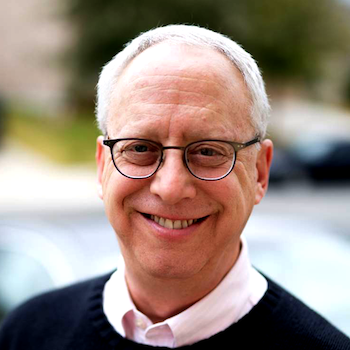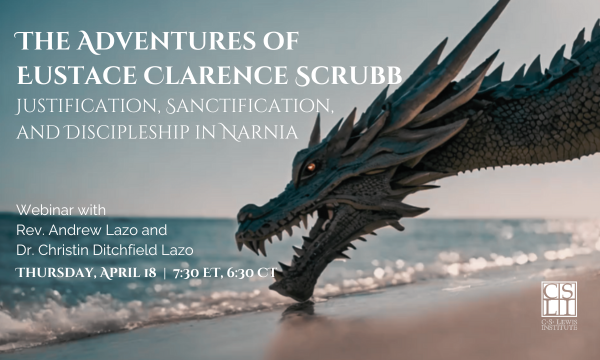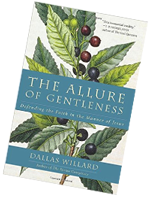Back to series


Recommended Reading:

Download or Listen to Audio
A Welcome Change in Apologetics
Click here to open a Print - Friendly PDF
As I meet Christians in a variety of settings, I sense a shift in motivations for evangelism. And I’m greatly encouraged by it. For a long time, I think Christians flocked to apologetics seminars and evangelism trainings because they felt guilty. They knew they were supposed to speak up, not be ashamed, make the most of every opportunity, and preach the word in season and out of season. But they didn’t. And they felt guilty for their evangelistic lockjaw. So they hoped some training would alleviate the pain. In some cases, that worked. But for most, it exacerbated the problem. Then came a tidal wave of apologetics research that emboldened believers to make a defense, demolish strongholds, answer objections, and win arguments. Their motivations shifted from guilt to pride. The results were less than wonderful. We won a lot of debates but lost a lot of hearers. We won but we lost.
But today I hear a different motivation for reaching out—concern. We’re burdened for our friends who don’t know the joy of the gospel. We’re disturbed to see them messing up their lives and families as they follow the hedonistic ways of our culture. We love them and hate what the devil is doing to them. We may not know how to reach people or what to say, but we want to learn—not to alleviate guilt or win a fight but to see people rescued.
Evidence for this change—and perhaps a stimulus to accelerate it—can be seen by Christianity Today magazine’s selection of two books for their 2016 Book of the Year Awards in the category of Apologetics and Evangelism. Os Guinness’s Fool’s Talk and the late Dallas Willard’s The Allure of Gentleness call for “defending the faith in the manner of Jesus” (Willard’s book’s subtitle) and apologetics “shaped by the distinctiveness of the truth it proclaims.”1 These tones sound different from that of many other apologetics books I’ve read. They point the spotlight more on “winning people than winning arguments.”2 Willard calls apologetics “a loving service” and comments, “It is the finding of answers to strengthen faith. It should be done in the spirit of Christ and with his kind of intelligence, which, by the way, is made available to us.”3
Readers familiar with Dallas Willard’s profound writings will not be surprised by his recurring theme of our need to be shaped through spiritual disciplines. He made that case in The Spirit of the Disciplines and The Divine Conspiracy. He was working on The Allure of Gentleness to apply his thinking to the task of evangelism but was unable to complete it before his death in 2013. His daughter, Rebecca Willard Heatley, compiled his many notes and drafts to present us with this fine book to help us reach out with gospel-shaped apologetics.
 In this article, I am not offering book reviews; rather, I highlight several important lessons from these two books and offer my own suggestions for how to apply them to our evangelistic efforts. First, we must shift our emphasis from questions (theirs) to character (ours!). To be sure, answers and arguments and wrestling with intellectual issues must be pursued. And we must do so with the utmost rigor. But we dare not divorce “apologetics and discipleship,”4 as we have done for quite some time. We need to ask God to reshape us so we truly love people and see them as “precious, eternal, valuable souls.”5 Willard sums up much of his life’s passion and themes when he writes,
In this article, I am not offering book reviews; rather, I highlight several important lessons from these two books and offer my own suggestions for how to apply them to our evangelistic efforts. First, we must shift our emphasis from questions (theirs) to character (ours!). To be sure, answers and arguments and wrestling with intellectual issues must be pursued. And we must do so with the utmost rigor. But we dare not divorce “apologetics and discipleship,”4 as we have done for quite some time. We need to ask God to reshape us so we truly love people and see them as “precious, eternal, valuable souls.”5 Willard sums up much of his life’s passion and themes when he writes,
The ultimate apologetic is the life of the individual who is living out of the resources of the kingdom of God. To have a nice set of abstract ideas and arguments can be very important for us, but we need to be people who are actually accomplishing things in the kingdom of the heavens through our prayers and our words.6
Second, we must adjust our approaches according to the dramatic changes in our culture. According to Guinness, most evangelism strategies in recent years assume a certain readiness on the part of non-Christians to hear our message. But today “most people quite simply are not open, not interested and not needy… Indeed, many are more hostile, and their hostility is greater than the Western church has faced for centuries.”
7Third, we can admit our doubts to outsiders and invite them to compare their doubts with ours. Then, we can offer reasons for having confidence to believe. This is a far cry from two people simply sharing their ignorance. But it is equally far from a triumphal claim of absolute certainty of which many Christians boast.
Willard shows us two sides of this important insight. On the one hand, “many churchgoers have been taught not to question what they hear in church and that doubt is a bad thing. But they are missing the great value in doubt—it can stimulate you to keep thinking and asking questions.”8 In other words, we might actually come out with greater confidence by admitting our doubts, examining them, and seeking help from the Scriptures and learning from doubters who’ve gone before us. On the other hand, we must challenge non-Christians to doubt their doubts and not just cling to their skepticism as a badge of honor. Willard tells people, “If you’re going to be a doubter, you need to believe your beliefs and doubt your doubts as well as to doubt your beliefs and believe your doubts.”9 Believers don’t have to be as “sure” as we’ve pretended to be in the past, but outsiders should be less comfortable with their doubts than they’ve often been.
 In fact, Willard contends that the point of discussion needs to start further back or with larger issues than we’ve typically addressed. I think he is correct when he offers, “My feeling is that in apologetics, however, the real issues are not in the details. They are in the big issues: What the premises are, what the conclusions are, what the real questions are about, what doesn’t make sense, and how to make sense of it.”
In fact, Willard contends that the point of discussion needs to start further back or with larger issues than we’ve typically addressed. I think he is correct when he offers, “My feeling is that in apologetics, however, the real issues are not in the details. They are in the big issues: What the premises are, what the conclusions are, what the real questions are about, what doesn’t make sense, and how to make sense of it.”
10I want to quickly add that both authors have no illusions of this being easy. They continually warn of the dangers of naiveté and the high likelihood of rejection and persecution. This is because, as Guinness repeatedly affirms, people do not merely disagree with intellectual propositions. They “suppress the truth in unrighteousness” (Rom. 1:18 – NASB). Guinness’s extended “anatomy of unbelief” (all of chap. 5) provides deep insight to the complexity of human behavior and takes seriously the Scriptures’ teaching about the darkness, deception, and dangers of sin. Apologetics has always involved both arguments and armor.
In spite of the obstacles, both writers are hopeful. Guinness goes so far as to say, “Our age is quite simply the greatest opportunity for Christian witness since the time of Jesus and the apostles, and our response should be to seize the opportunity with bold and imaginative enterprise.”
11Improvements in communication technology connect us better than ever. The trials and pains of our worlds can open people to consider spiritual solutions. And the rise of self-reflection and self-promotion (for good or for ill) pave the way for airing and considering deep personal views.
Neither book offers many practical tips for applying the truths discussed. That’s not a criticism. Intellectual prophets like Guinness and Willard help us see things we might not otherwise see. But others in the body of Christ can help us take next steps. Here are four suggestions I offer for application:
If you don’t already have close alliances with strong believers, make it a high priority to develop them. We need others in the body of Christ for more than fellowship, accountability, and encouragement. We need people close enough to tell us when we’re sounding harsh or uncaring or argumentative. While we’re expanding our apologetics toolboxes, we also need to be deepening our reservoirs of grace. We need to grow in our wonder at how much we are loved through the cross and find ways to express kindness to outsiders. And that often benefits from feedback that lets us know when we’re not as gentle as we should be.
Step out and begin conversations even if you can’t anticipate how they’ll go. Our reliance needs to be on our sovereign God and His desire that none should perish, rather than on our own rhetorical skills or our hope of winning debates. We might begin by admitting doubts to outsiders and wondering if we can compare our uncertainties with theirs. Then we can offer why we’re hopeful, confident, and joyful even in the midst of struggles. Sooner or later, we could share why our belief in Jesus’ resurrection tips the scales for us in the direction of confident faith and helps us reject despair and unbelief.
 When engaging with non-Christians about your own faith, consider how to say things as well as what to say. To use Guinness’s language, we need to recover the art of Christian persuasion. Of course, we want to articulate nonnegotiable truths of the gospel and orthodox faith. But we should consider sequence as well as substance. In other words, we might want to reflect on which parts of our message need to be delivered first. There may be points in our presentation when we need to pause and allow the person with whom we are talking to consider and, one hopes, accept part of our message before moving on to “the rest of the story.” For example, if we’re trying to convince our friends that the Bible is a reliable source of authoritative truth, we might ask them if they think there is such a thing as truth. If not, we might build that case before talking about historical accuracy or archaeological discoveries. Tone of voice, volume, and facial expression are all parts of interpersonal communication. We dare not assume that we sound as gracious as we should. In fact, sometimes our tone betrays our words. One way to ensure continuity between our verbal and nonverbal messages is to include stories of ways we’ve been changed by the gospel. It’s one thing to tell our friends that the resurrection really happened in history. It’s another to recount times when we’ve felt comforted by that truth while sitting at a funeral or next to a loved one who was dying. The hope of the resurrection is just as important to express as the evidence for its historicity. A grateful tone of voice and a worshipful demeanor may press our point further than lists of reasons or quotations by experts.
When engaging with non-Christians about your own faith, consider how to say things as well as what to say. To use Guinness’s language, we need to recover the art of Christian persuasion. Of course, we want to articulate nonnegotiable truths of the gospel and orthodox faith. But we should consider sequence as well as substance. In other words, we might want to reflect on which parts of our message need to be delivered first. There may be points in our presentation when we need to pause and allow the person with whom we are talking to consider and, one hopes, accept part of our message before moving on to “the rest of the story.” For example, if we’re trying to convince our friends that the Bible is a reliable source of authoritative truth, we might ask them if they think there is such a thing as truth. If not, we might build that case before talking about historical accuracy or archaeological discoveries. Tone of voice, volume, and facial expression are all parts of interpersonal communication. We dare not assume that we sound as gracious as we should. In fact, sometimes our tone betrays our words. One way to ensure continuity between our verbal and nonverbal messages is to include stories of ways we’ve been changed by the gospel. It’s one thing to tell our friends that the resurrection really happened in history. It’s another to recount times when we’ve felt comforted by that truth while sitting at a funeral or next to a loved one who was dying. The hope of the resurrection is just as important to express as the evidence for its historicity. A grateful tone of voice and a worshipful demeanor may press our point further than lists of reasons or quotations by experts.

I am writing this article during the summer of 2016 as the political climate in the United States continues to grow hotter than I ever imagined it would. I don’t know who will win the next elections, but I am sure the campaigning will get louder, meaner, and uglier. Our culture sounds shrill, angry, and harsh. Sadly, many Christians sound no different than the media moguls on both sides of the political spectrum. To quote the book of James, “My brothers, this should not be.”
Let us find words to tell people of their need for salvation and the astounding news that God has provided that salvation. But let us proclaim that good news with more than just words. Let us ask God to make our voices, faces, and eyes match the grace of His gospel. Let us recover persuasion, release the allure of gentleness, and reach out in the manner of Jesus.
|
Notes: |
|||

Randy Newman
Senior Fellow for Apologetics and Evangelism, CSLI Randy Newman is the Senior Fellow for Apologetics and Evangelism at the C.S. Lewis Institute. He has taught at several evangelical seminaries. After serving for over 30 years with Campus Crusade for Christ, he established Connection Points, a ministry to help Christians engage people’s hearts the way Jesus did. He has written seven books, Questioning Evangelism, Corner Conversations, Bringing the Gospel Home, Engaging with Jewish People, Unlikely Converts: Improbable Stories of Faith and What They Teach Us About Evangelism, Mere Evangelism. and his most recent, Questioning Faith: Indirect Journeys of Belief through Terrains of Doubt. Randy has also written numerous articles about evangelism and other ways our lives intertwine with God’s creation. He earned his MDiv and PhD in Intercultural Studies from Trinity International University.
Recommended Reading:
Dallas Willard, The Allure of Gentleness: Defending the Faith in the Manner of Jesus (HarperOne, 2016)
Dallas Willard provides a new model for how we can present the Christian faith to others. This beautiful model of life—this allure of gentleness—he argues, is the foundation for making the most compelling argument for Christianity, one that will convince others that there is something special about Christianity and the Jesus we follow.
 COPYRIGHT: This publication is published by C.S. Lewis Institute; 8001 Braddock Road, Suite 301; Springfield, VA 22151. Portions of the publication may be reproduced for noncommercial, local church or ministry use without prior permission. Electronic copies of the PDF files may be duplicated and transmitted via e-mail for personal and church use. Articles may not be modified without prior written permission of the Institute. For questions, contact the Institute: 703.914.5602 or email us.
COPYRIGHT: This publication is published by C.S. Lewis Institute; 8001 Braddock Road, Suite 301; Springfield, VA 22151. Portions of the publication may be reproduced for noncommercial, local church or ministry use without prior permission. Electronic copies of the PDF files may be duplicated and transmitted via e-mail for personal and church use. Articles may not be modified without prior written permission of the Institute. For questions, contact the Institute: 703.914.5602 or email us.
-
Recent Podcasts
The Side B Stories – Dr. James Tour’s story
by Jana Harmon, James Tour on April 12, 2024From a secular Jewish home, scientific scholar and...Read More
-
Why are Christians so Bad?
by Paul Joen on April 5, 2024
-
Questions That Matter Podcast – Dai Hankey and Gospel Hope for Weary Souls
by Randy Newman, Dai Hankey on April 5, 2024
-
Recent Publications
Isn’t Morality Relative?
by Christopher L. Reese on April 1, 2024It is widely accepted in the Western world...Read More
-
Do Muslims and Christians Worship the Same God?
by Andy Bannister on March 1, 2024
-
Artificial Intelligence and Its Impacts on Humanity
by John Lennox on February 13, 2024
0
All Booked
0.00
All Booked
0.00
All Booked
21934
GLOBAL EVENT: The Adventures of Eustace Clarence Scrubb (CSLI-Atlanta & CSLI-Chicago) 7:30PM ET/ 6:30PM CT
https://www.cslewisinstitute.org/?event=global-event-the-adventures-of-eustace-clarence-scrubb-csli-atlanta-csli-chicago-730pm-et-630pm-ct&event_date=2024-04-18®=1
https://www.paypal.com/cgi-bin/webscr
2024-04-18

Next coming event
Days
Hours
Minutes
Seconds
GLOBAL EVENT: The Adventures of Eustace Clarence Scrubb (CSLI-Atlanta & CSLI-Chicago) 7:30PM ET/ 6:30PM CT
On April 18, 2024 at 7:30 pm Virtual Online EventSpeakers

Randy Newman
Senior Fellow for Apologetics and Evangelism, CSLI
Team Members

Randy Newman
Senior Fellow for Apologetics and Evangelism, CSLIRandy Newman is the Senior Fellow for Apologetics and Evangelism at the C.S. Lewis Institute. He has taught at several evangelical seminaries. After serving for over 30 years with Campus Crusade for Christ, he established Connection Points, a ministry to help Christians engage people’s hearts the way Jesus did. He has written seven books, Questioning Evangelism, Corner Conversations, Bringing the Gospel Home, Engaging with Jewish People, Unlikely Converts: Improbable Stories of Faith and What They Teach Us About Evangelism, Mere Evangelism. and his most recent, Questioning Faith: Indirect Journeys of Belief through Terrains of Doubt. Randy has also written numerous articles about evangelism and other ways our lives intertwine with God’s creation. He earned his MDiv and PhD in Intercultural Studies from Trinity International University.




